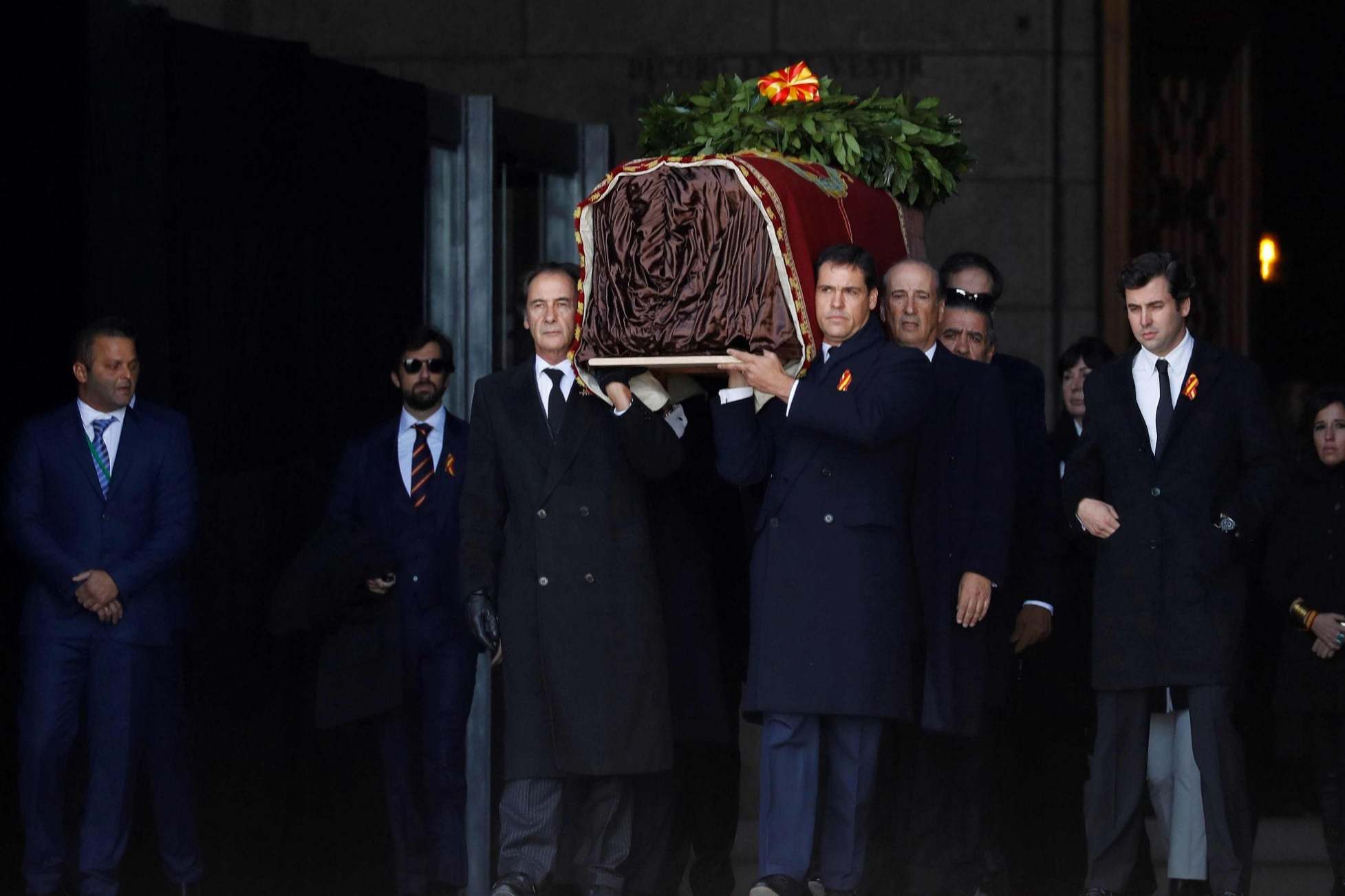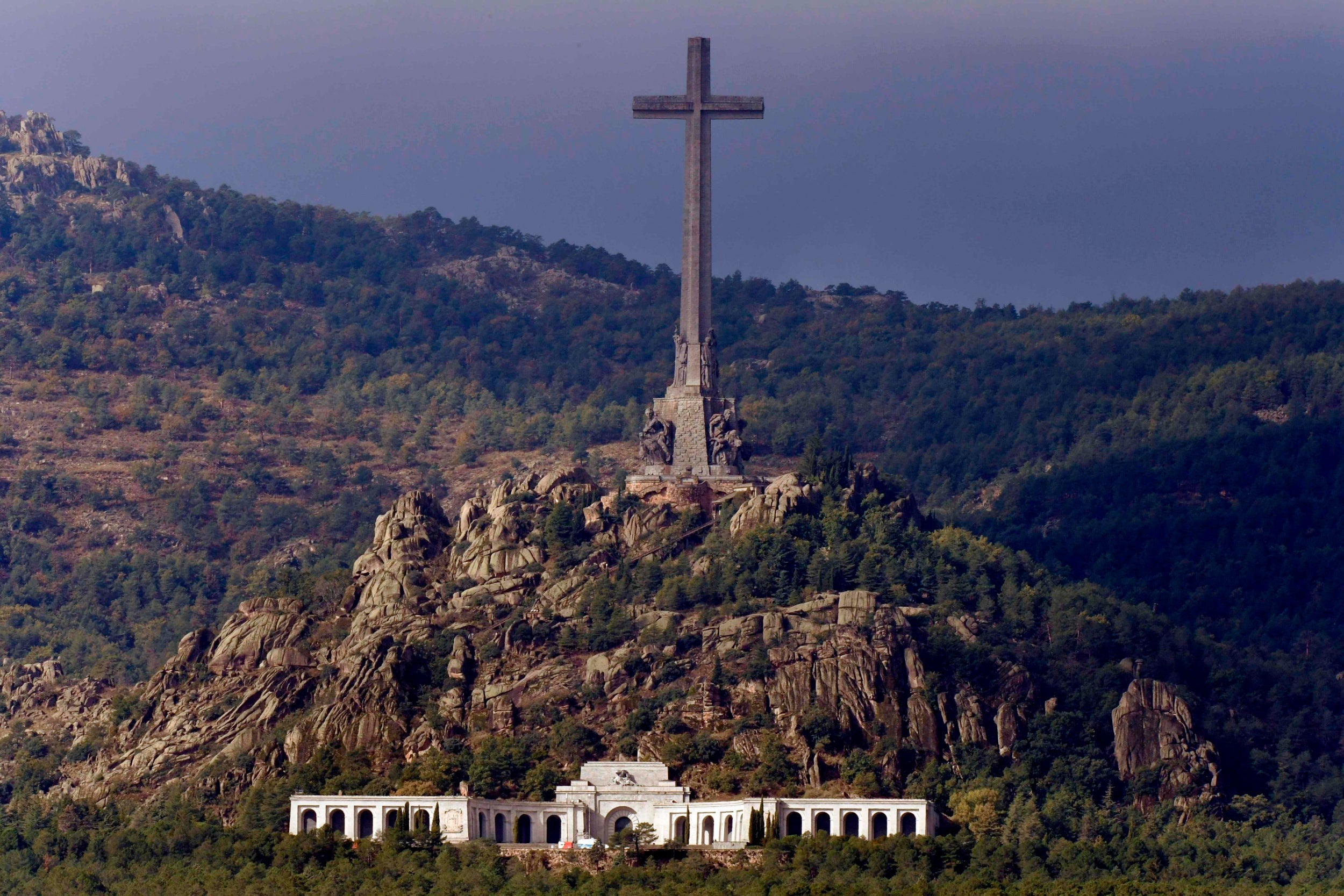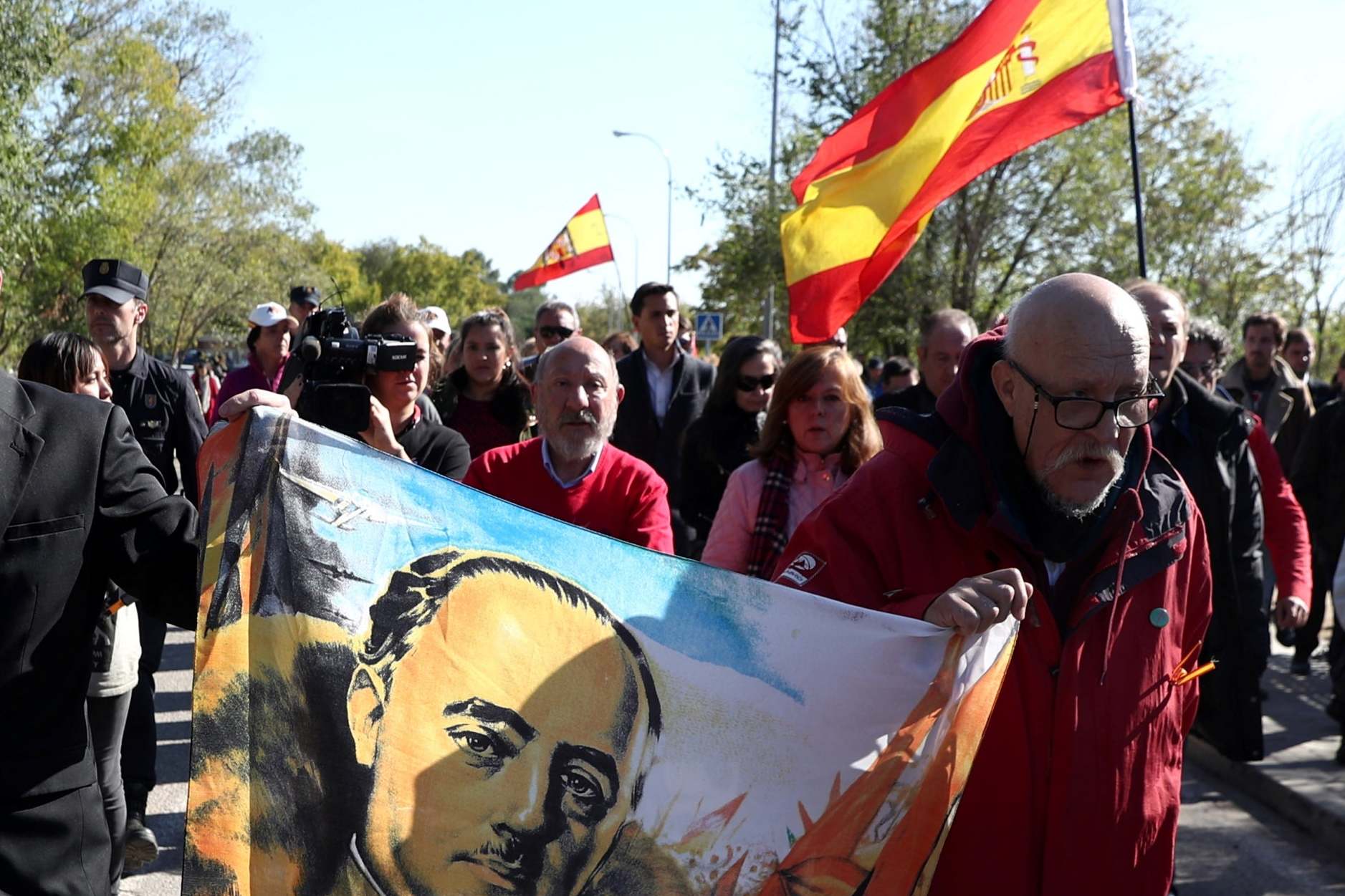Divided over a dictator, Spain exhumes Franco’s remains ‘to repair an infamy’
Moving fascist leader’s body has divided the country, where the scars of brutal civil war still linger

Your support helps us to tell the story
From reproductive rights to climate change to Big Tech, The Independent is on the ground when the story is developing. Whether it's investigating the financials of Elon Musk's pro-Trump PAC or producing our latest documentary, 'The A Word', which shines a light on the American women fighting for reproductive rights, we know how important it is to parse out the facts from the messaging.
At such a critical moment in US history, we need reporters on the ground. Your donation allows us to keep sending journalists to speak to both sides of the story.
The Independent is trusted by Americans across the entire political spectrum. And unlike many other quality news outlets, we choose not to lock Americans out of our reporting and analysis with paywalls. We believe quality journalism should be available to everyone, paid for by those who can afford it.
Your support makes all the difference.The long-awaited and controversial exhumation of Francisco Franco’s remains from the Valley of the Fallen mausoleum, 44 years after his death, was finally carried out on Thursday.
The transfer of the remains to a much more low-key cemetery in the village of Mingorrubio near Madrid had been a key promise of Spain’s socialist government.
Pedro Sanchez, Spain’s acting prime minister, said the exhumation was “a step towards reconciliation”, but it has been criticised by opposition parties as divisive, in a country where scars from the brutal 1936-39 civil war that brought Franco to power still linger.
The general’s resting place in the ostentatious Valley of the Fallen had become a place of pilgrimage for Franco loyalists. His exhumation received strong support from those who believed it glorified the fascist dictator, and for those who lost loved ones at the hands of Franco’s death squads especially, the move could not come soon enough.
“I never thought it logical or correct that a person like that who committed so much harm should be in a place like the Valley of the Fallen,” one woman told The Independent, asking to remain anonymous. Her grandfather was killed in the war, but like tens of thousands of others, his body remains unrecovered in one of the mass graves across Spain.
“People nostalgic for Franco’s era will use it to try to whip up some outrage, but that’s not going to change what he is or was, whether he’s in one place or another. Whatever we think of him is going to stay the same.”

However, the exhumation - after which Franco’s remains were taken to Mingorrubio by helicopter - was passionately opposed by his family, and Spain’s hard right, as well as parts of the church.
Kept at a distance of some 300 metres from the Mingorrubio-El Pardo cemetery by a long line of police, hundreds of Franco supporters waited hours for the funeral cortege and helicopter to arrive, chanting their devotion to the general.
“This isn’t a homage, this is to support Francisco Franco and his family at a time when they are suffering,” Jose Ramon Medina, who travelled 400 miles from his home town of El Ejido, told The Independent.
“People die and are buried across Spain every day, but this is a desecration of a tomb. Maybe it’s legal, but it’s showing a total lack of respect.”
There was widespread excitement and shouts of support for Antonio Tejero, when the former civil guard who masterminded a failed coup d’etat against Spain’s democratic government in 1981 moved through the crowd. His son, Ramon, a priest, officiated a commemorative mass for Franco during his reburial.

Many of the mostly middle-aged and elderly crowd outside the cemetery bore flowers and wreaths, and repeated chants of “Arriba España!, Viva Franco!” well into the afternoon. Others were draped in illegal pre-democracy Spanish flags, wore Franco-era army hats or gave out posters of the general.
When the funeral cortege containing Franco’s relatives and the coffin passed by, arms were outstretched in the Fascist salute, and yet another hard-right anthem was sung.
“They want to change the history of Spain 80 years after it happened,” said an unemployed man who had driven through the night from Seville.
“This exhumation is simply part of a political campaign, and coming here to pray for Franco’s soul is something we have to do.”
Mr Sanchez said it was necessary now to begin the process of identifying the thousands of Franco victims who were also buried at the mausoleum.
“It’s an infamy that has to be repaired,” he added.
Join our commenting forum
Join thought-provoking conversations, follow other Independent readers and see their replies
Comments